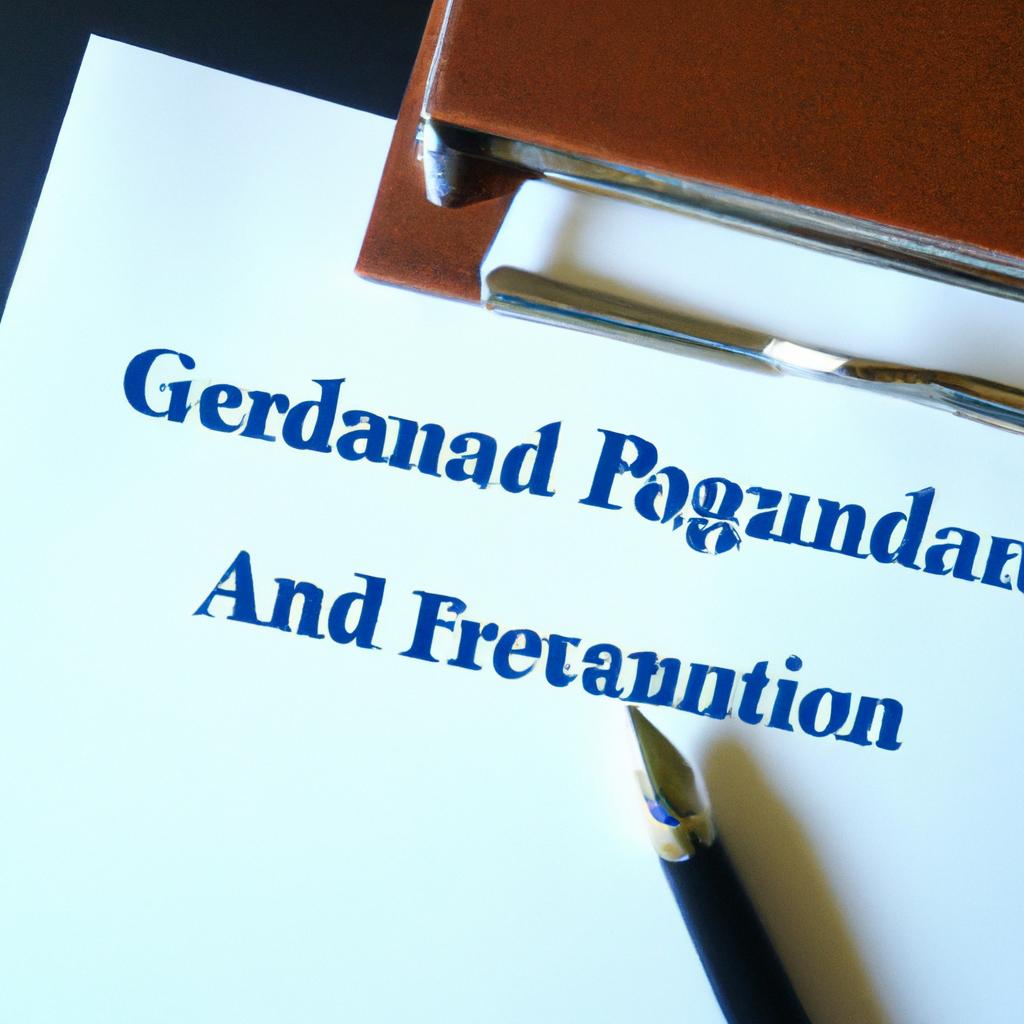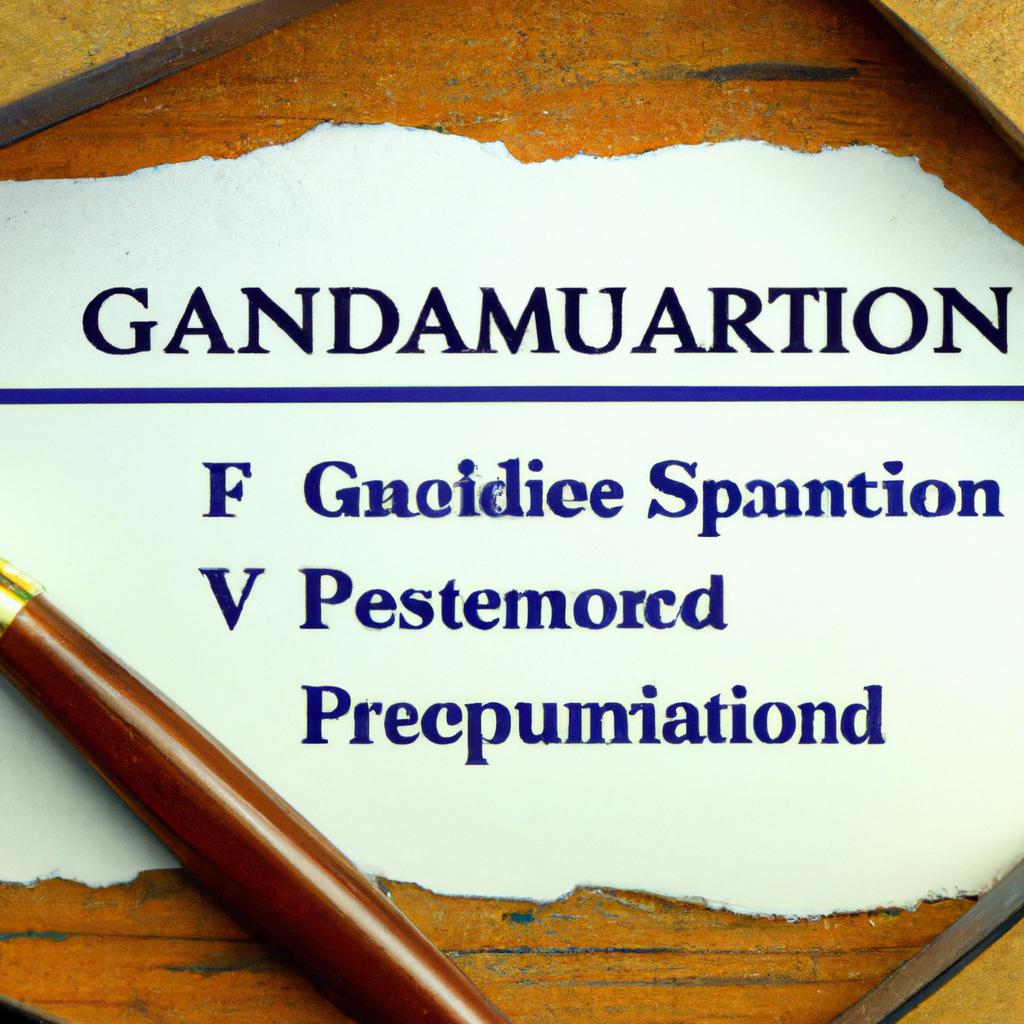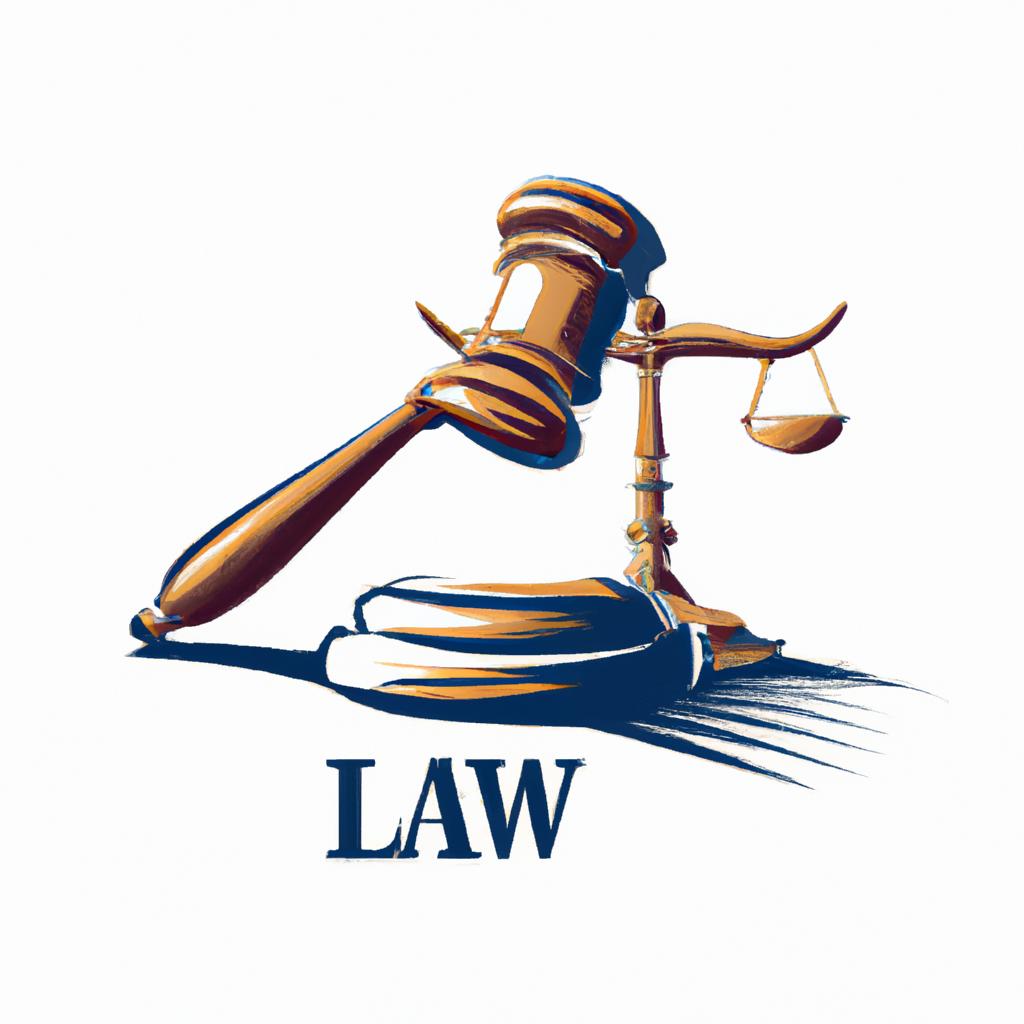As experienced legal professionals at Morgan Legal Group in New York City, we often come across situations in which individuals are faced with important decisions regarding the care and upbringing of a minor. Among the most common questions we encounter are those surrounding the concepts of permanent guardianship and custody. In this article, we aim to provide clarity on the distinctions between these two legal arrangements, shedding light on their respective implications and guiding individuals towards informed decision-making. With our expertise in estate planning, probate, elder law, Wills, and trusts, we are well-equipped to offer comprehensive insights into this complex and crucial aspect of family law.
Permanent Guardianship: A Comprehensive Overview
Permanent guardianship and custody are two distinct legal arrangements that dictate the care and responsibility for a child. While both involve the welfare of a child, there are key differences between the two.
In permanent guardianship, a guardian is appointed to make decisions regarding the child’s upbringing, education, healthcare, and overall well-being. The guardian is granted legal authority to act in the best interests of the child, but the child’s biological parents may still have certain rights. On the other hand, custody typically refers to a parent’s legal right to make decisions for their child and have physical custody of them. In some cases, custody may be temporary or shared between parents.

Key Differences Between Permanent Guardianship and Custody
Permanent guardianship and custody are both legal arrangements that involve someone taking responsibility for a child who is not their biological offspring. However, there are key differences between the two that are important to understand.
One major difference is that permanent guardianship typically involves a longer-term commitment than custody. The guardian is granted legal rights and responsibilities over the child until they reach adulthood or until the court determines that the arrangement is no longer necessary. On the other hand, custody arrangements can be temporary and may be subject to change based on various factors.

Factors to Consider When Deciding Between Permanent Guardianship and Custody
When deciding between permanent guardianship and custody, there are several factors to consider that can greatly impact the outcome and well-being of the child in question. It is essential to carefully weigh these factors before making a decision:
- Stability: Consider which option will provide the most stability for the child in terms of living arrangements, education, and emotional support.
- Legal Rights: Understand the legal rights and responsibilities that come with each option, including decision-making authority, financial support, and visitation rights.
- Relationship with the Child: Take into account the existing relationship between the child and the potential guardian or custodian, as well as the child’s preferences and needs.
Additionally, it is important to consider the financial implications of each option, as well as the long-term impact on the child’s well-being and future. Consult with a knowledgeable attorney, such as those at Morgan Legal Group in New York City, to explore all options and make an informed decision that is in the best interest of the child.

Recommendations for Choosing the Right Option for Your Family
When deciding between permanent guardianship and custody for your family, it’s important to consider the legal implications and responsibilities that come with each option. Permanent guardianship grants the guardian the legal right and responsibility to make decisions for the child, including medical care, education, and day-to-day decisions. This option is often chosen when parents are unable to care for their child due to illness, incarceration, or other circumstances. It provides a stable and long-term living situation for the child, ensuring their well-being and safety.
On the other hand, custody grants the custodial parent the legal right to make decisions for the child, but does not terminate the parental rights of the non-custodial parent. While custody arrangements can be modified, the non-custodial parent still has the right to visitation and involvement in the child’s life. Custody is often chosen when parents are separating or divorcing, allowing for flexibility and shared decision-making between the parents. It’s important to consult with a legal expert to determine the best option for your family’s unique situation and needs.
Q&A
Q: What is the difference between permanent guardianship and custody?
A: Permanent guardianship grants individuals the legal authority to make decisions on behalf of a child for an extended period, while custody typically refers to temporary care arrangements.
Q: How is permanent guardianship established?
A: Permanent guardianship is often established through a legal process in which a court grants the guardian full responsibility for the child’s well-being and decisions.
Q: What are the responsibilities of a permanent guardian?
A: A permanent guardian is responsible for providing a stable and nurturing environment for the child, making important decisions regarding their education, healthcare, and general welfare.
Q: How does custody differ from permanent guardianship?
A: Custody is typically a temporary arrangement that may be granted to a parent or guardian during a divorce or separation, while permanent guardianship is a more permanent and legally binding commitment.
Q: Can a permanent guardian be removed from their role?
A: In some cases, a court may approve the removal of a permanent guardian if it is deemed to be in the best interests of the child, but this process can be complex and challenging.
Q: What factors are considered when determining permanent guardianship?
A: Factors such as the child’s relationship with the potential guardian, the stability of the guardian’s home environment, and the ability of the guardian to provide for the child’s physical, emotional, and developmental needs are all taken into consideration in determining permanent guardianship.
Q: What are the benefits of permanent guardianship?
A: Permanent guardianship provides a sense of stability and security for the child, ensuring that their needs are met in a consistent and reliable manner, even if their biological parents are unable to care for them.
In Conclusion
In conclusion, when considering the options of permanent guardianship versus custody, it is important to carefully weigh the individual circumstances and needs of the child involved. While custody may provide more parental rights and responsibilities, permanent guardianship offers stability and security for the child in the long term. Ultimately, the best choice will depend on the unique situation and the best interests of the child. Whichever path is chosen, ensuring the well-being and happiness of the child should always be the top priority. Remember, every child deserves a loving and supportive environment to thrive in.
 Permanent guardianship and custody are legal terms that refer to the responsibility and authority of caring for a child. Both of these arrangements involve a child being placed under the care of another person, but there are important differences between them. Understanding the differences between permanent guardianship and custody is crucial for anyone considering taking on the care of a child or for parents trying to decide what is best for their child.
Permanent guardianship and custody are legal terms that refer to the responsibility and authority of caring for a child. Both of these arrangements involve a child being placed under the care of another person, but there are important differences between them. Understanding the differences between permanent guardianship and custody is crucial for anyone considering taking on the care of a child or for parents trying to decide what is best for their child.
In this article, we will discuss the definitions of permanent guardianship and custody, the differences between the two, and the benefits of each arrangement. We will also provide practical tips and advice for those involved in these legal arrangements.
Definitions and Differences:
Permanent guardianship is a legal arrangement where a guardian is given the responsibility and authority to make important decisions on behalf of a child. This could include decisions about the child’s education, medical care, and general welfare. Permanent guardianship is a long-term arrangement, with the guardian having responsibility until the child reaches adulthood or the guardianship is terminated by the court.
Custody, on the other hand, is a broader term that refers to the legal right and responsibility to care for a child. There are two main types of custody, physical and legal. Physical custody refers to where the child lives and who takes care of their daily needs, while legal custody refers to the right to make decisions about the child’s upbringing, such as education and healthcare.
There are two types of custody: sole and joint. Sole custody means that one parent has complete custody of the child, while joint custody means that both parents have equal or shared responsibility for the child’s upbringing.
In summary, permanent guardianship is a more specific and long-term arrangement, while custody is a broader term that can have various forms, including permanent custody.
Benefits of Permanent Guardianship:
Permanent guardianship can be an ideal arrangement for both the child and the guardian. Some of the key benefits of permanent guardianship include:
1. Stability and Consistency: For children who may have experienced instability, trauma, or multiple caregivers, permanent guardianship can provide a sense of stability and consistency as the child grows up.
2. Flexibility: Permanent guardians have the authority to make important decisions about the child’s life and can customize the care according to the child’s specific needs.
3. Financial Assistance: In some cases, permanent guardians may receive financial assistance from the government or the child’s biological parents to cover the child’s expenses.
4. Less Legal Intervention: Permanent guardians do not need to seek the court’s approval for day-to-day decisions, which can save time and prevent legal complications.
5. Continued Connection with Biological Family: Permanent guardianship allows for continued contact with the child’s biological family, providing a sense of belonging and connection for the child.
Benefits of Custody:
Custody also offers several benefits for both the child and the parent. Some of the key benefits of custody include:
1. Parental Authority: Custodial parents have the authority to make decisions about their child’s upbringing, including education, healthcare, and religion.
2. Shared Parenting: Joint custody involves shared responsibility between both parents, providing the child with a closer relationship with both parents and a sense of stability.
3. Financial Assistance: In some cases, the non-custodial parent may be required to pay child support to the custodial parent to assist with the child’s expenses.
4. Legal Protection: In case of disputes or disagreements regarding the child’s upbringing, having custody can provide legal protection for the parent.
5. Parental Bonding: Custodial parents have the opportunity to develop a strong bond with their child through daily care and decision-making.
Practical Tips for Permanent Guardians and Custodial Parents:
Whether you are a permanent guardian or a custodial parent, here are some practical tips to ensure that the child’s care is well-maintained:
1. Develop a Strong Relationship: Children thrive in a loving and caring environment, so it is essential to establish a strong relationship with the child. This can be achieved through open communication, quality time, and trust-building activities.
2. Seek Professional Help: Caring for a child can be challenging, so it is crucial to seek professional help or therapy if needed. This can provide support for both the child and the guardian/parent.
3. Involve the Child in Decision-Making: Depending on the child’s age and maturity, it is vital to involve them in decision-making and take their opinions into account. This can also help develop a sense of responsibility and independence in the child.
Case Study: Jack’s Story
Jack was a 10-year-old boy whose parents were unable to care for him due to financial struggles. Jack’s aunt and uncle stepped in and obtained permanent guardianship of Jack. This allowed them to make decisions for Jack’s well-being, such as enrolling him in school and getting him medical treatment when needed. Thanks to the stability and care provided by his aunt and uncle, Jack was able to thrive and have a stable childhood.
First-Hand Experience: Maria’s Testimony
“I have been a permanent guardian for my niece Sofia for three years now. Although it was a difficult decision to make, it has been a truly rewarding experience. Sofia has adapted well to her new home and family, and I have been able to provide her with a stable and loving environment. I highly recommend permanent guardianship for those who are unable to care for their child and are looking for a long-term solution.”
Conclusion:
In conclusion, permanent guardianship and custody are different legal arrangements that provide care for a child. Permanent guardianship offers a more specific and long-term arrangement, while custody is a broader term that can have various forms. Both arrangements have their unique benefits and can provide a stable and loving environment for the child. It is essential to understand the differences between the two and seek professional help and support to provide the child with a nurturing home.


